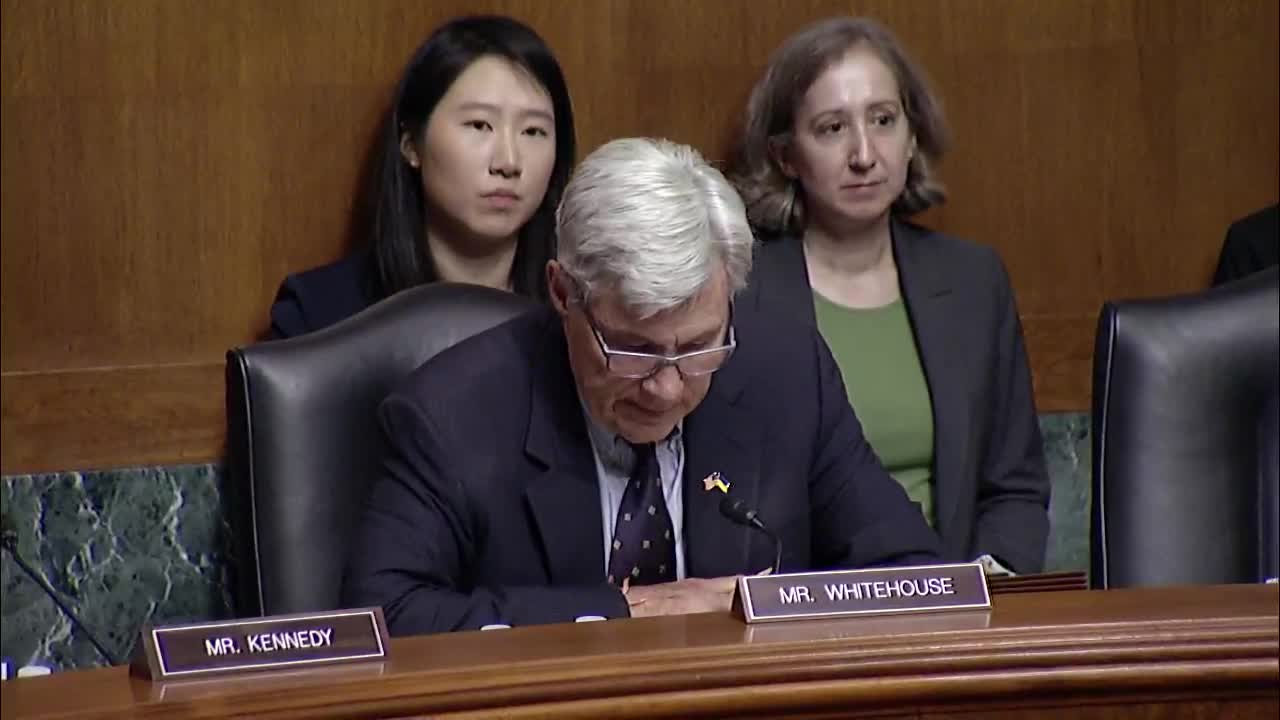Mother's Heartbreaking Journey Through Texas Abortion Law Challenges
June 12, 2024 | Judiciary: Senate Committee, Standing Committees - House & Senate, Congressional Hearings Compilation

This article was created by AI summarizing key points discussed. AI makes mistakes, so for full details and context, please refer to the video of the full meeting. Please report any errors so we can fix them. Report an error »

In a recent government meeting, a poignant discussion unfolded regarding the implications of restrictive abortion laws on medical care and patient experiences. A witness, identified as Ms. Miller, shared her harrowing journey through a complicated twin pregnancy, revealing that she initially learned of her twins during an early ultrasound. However, the joy quickly turned to despair when a subsequent scan at 12 weeks indicated severe health issues with one of the twins, ultimately leading to the diagnosis of a non-viable fetus.
Ms. Miller recounted the emotional turmoil of receiving this news alongside her husband during an ultrasound appointment in Dallas. She described the overwhelming sense of loss and the physical toll the pregnancy took on her, as she struggled with severe morning sickness. As the couple sought guidance from their trusted medical team, they encountered a troubling reality: the restrictive abortion laws in Texas created an environment of fear among healthcare providers. Ms. Miller noted that during consultations, medical professionals would often hesitate to provide complete information, fearing legal repercussions for discussing options that could include termination.
The meeting highlighted the broader implications of such laws, with Senator Welch expressing concern over the chilling effect these regulations have on patient care. He emphasized that while individuals may hold differing views on abortion, the right to make informed decisions about one’s health should remain paramount. Ms. Miller's experience underscored the distressing reality that patients may find themselves scrambling for basic medical information due to the fear instilled by current legislation.
The discussion also touched on the perceived disconnect between the experiences of patients like Ms. Miller and the assurances provided by proponents of restrictive laws, who argue that such measures do not hinder access to necessary medical care. Senator Welch pointed out the stark contrast between the lived experiences of patients and the claims made by those advocating for these laws, calling into question the adequacy of support systems for women facing difficult pregnancies.
As the meeting concluded, it became clear that the intersection of healthcare and legislation continues to evoke strong emotions and raise critical questions about patient rights and the responsibilities of medical professionals in an increasingly complex legal landscape.
Ms. Miller recounted the emotional turmoil of receiving this news alongside her husband during an ultrasound appointment in Dallas. She described the overwhelming sense of loss and the physical toll the pregnancy took on her, as she struggled with severe morning sickness. As the couple sought guidance from their trusted medical team, they encountered a troubling reality: the restrictive abortion laws in Texas created an environment of fear among healthcare providers. Ms. Miller noted that during consultations, medical professionals would often hesitate to provide complete information, fearing legal repercussions for discussing options that could include termination.
The meeting highlighted the broader implications of such laws, with Senator Welch expressing concern over the chilling effect these regulations have on patient care. He emphasized that while individuals may hold differing views on abortion, the right to make informed decisions about one’s health should remain paramount. Ms. Miller's experience underscored the distressing reality that patients may find themselves scrambling for basic medical information due to the fear instilled by current legislation.
The discussion also touched on the perceived disconnect between the experiences of patients like Ms. Miller and the assurances provided by proponents of restrictive laws, who argue that such measures do not hinder access to necessary medical care. Senator Welch pointed out the stark contrast between the lived experiences of patients and the claims made by those advocating for these laws, calling into question the adequacy of support systems for women facing difficult pregnancies.
As the meeting concluded, it became clear that the intersection of healthcare and legislation continues to evoke strong emotions and raise critical questions about patient rights and the responsibilities of medical professionals in an increasingly complex legal landscape.
View full meeting
This article is based on a recent meeting—watch the full video and explore the complete transcript for deeper insights into the discussion.
View full meeting